CURRENT AFFAIRS
Get the most updated and recent current affair content on Padhaikaro.com
The National Clean Air Programme (NCAP)
- Vaid's ICS, Lucknow
- 02, Aug 2021
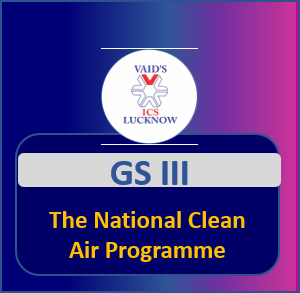
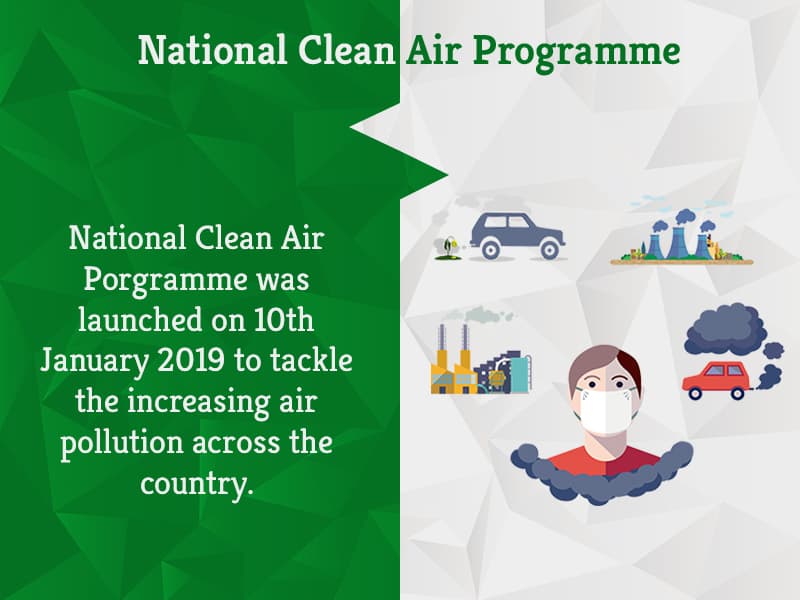
Topic: GS III ( Environment )/ Prelims and Mains
Why in News?
Minister of Environment, Forest and Climate change has recently announced that a holistic approach towards reduction of Air Pollution is being implemented across the country and the Ministry of Environment through the National Clean Air Programme (NCAP) is implementing the same across 122 cities in the country.
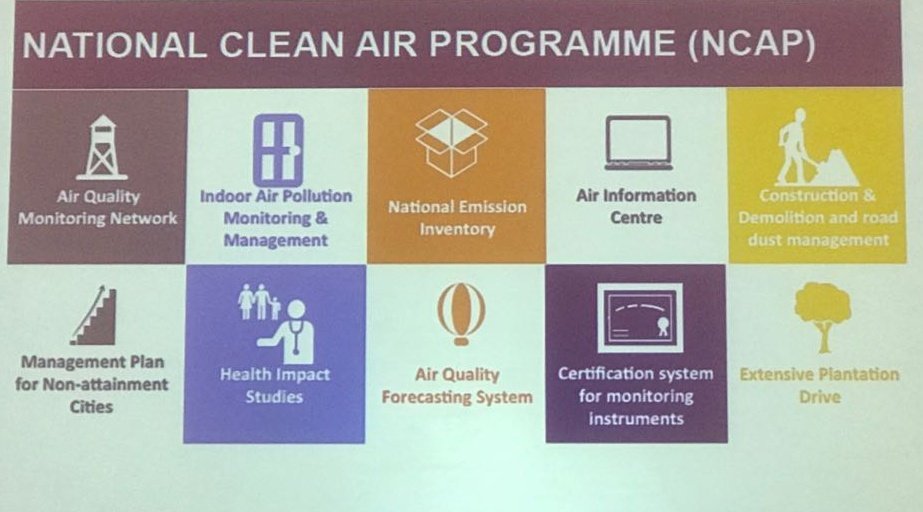
NCAP targets to achieve 20 to 30 % reduction in PM10 and PM2.5 concentrations by 2024 across the country.
About the National Clean Air Programme ( NCAP):
The National Clean Air Programme or NCAP is a government programme launched by the Union Ministry of Environment, Forests and Climate Change in 2019.
- The programme is a pollution control initiative with a major goal of reducing the concentration of coarse and fine particulate matter in the atmosphere by at least 20% by the year 2024.
The programme aims:
- To expand the national air quality monitoring network.
- To build capacity for air pollution management
- To raise public awareness about the hazards of air pollution
- The NCAP also aims to have a feasible plan for the prevention, management and control of air pollution.
- At the national level, the implementation of the programme will be done by an apex committee at the Environment Ministry level.
- At the state level, committees at the Chief Secretary level will oversee the implementation of the scheme.
- The NCAP is a joint collaboration between:
- Ministry of Road Transport and Highways
- Ministry of New and Renewable Energy
- Ministry of Petroleum and Natural Gas
- Ministry of Heavy Industry
- Ministry of Health
- Ministry of Housing and Urban Affairs
- Ministry of Agriculture
- Central Pollution Control Board
- NITI Aayog
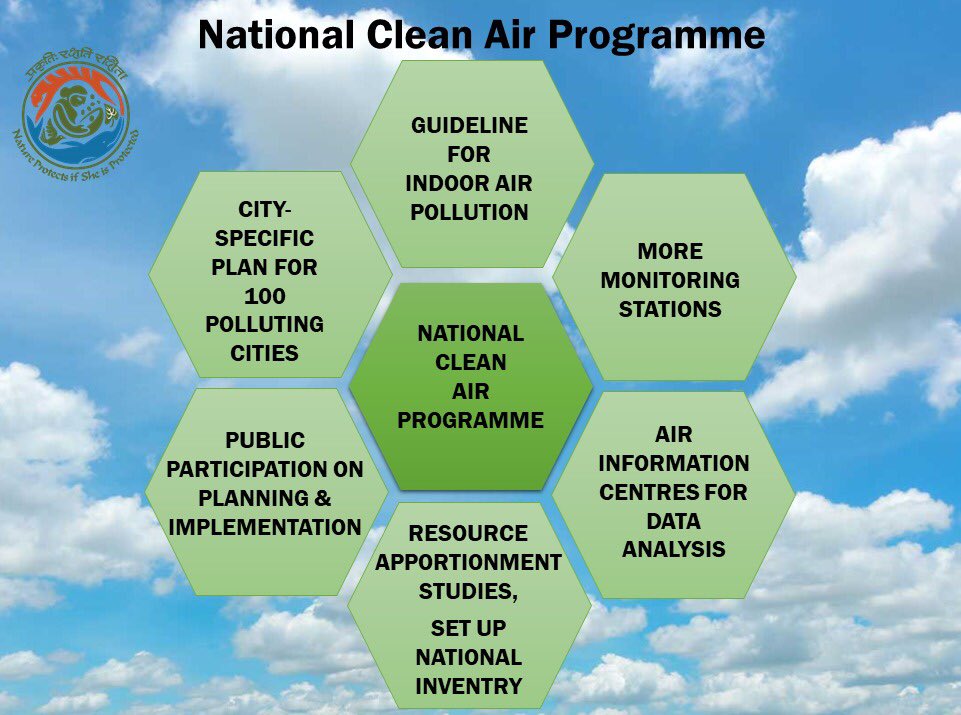
Air pollution – overall causes
- Burning of Fossil Fuels: Sulfur dioxide emitted from the combustion of fossil fuels like coal, petroleum and other factory combustibles is one the major cause of air pollution. Pollution emitting from vehicles including trucks, jeeps, cars, trains, airplanes cause immense amount of pollution.
- Agricultural activities (including stubble burning): Ammonia is a very common by product from agriculture related activities and is one of the most hazardous gases in the atmosphere. Use of insecticides, pesticides and fertilizers in agricultural activities has grown quite a lot.
- Exhaust from factories and industries: Manufacturing industries release large amount of carbon monoxide, hydrocarbons, organic compounds, and chemicals into the air thereby depleting the quality of air.
- Mining operations:Mining is a process wherein minerals below the earth are extracted using large equipments. During the process dust and chemicals are released in the air causing massive air pollution.
- Indoor air pollution:Household cleaning products, painting supplies emit toxic chemicals in the air and cause air pollution.
- Volcano Eruptions: Sometimes people think of air pollution as entirely man-made. In fact, natural processes release lots of substances into the air that are classed as pollution. Sulfur dioxide is a major modern air pollutant.
- Forest Fires:Forest fires release pollutants into the air in the same way as fireplaces burning wood produce pollution.
- Suspended particulatematter popular by its acronym SPM, is another cause of pollution. Referring to the particles afloat in the air, SPM is usually caused by dust, combustion etc.
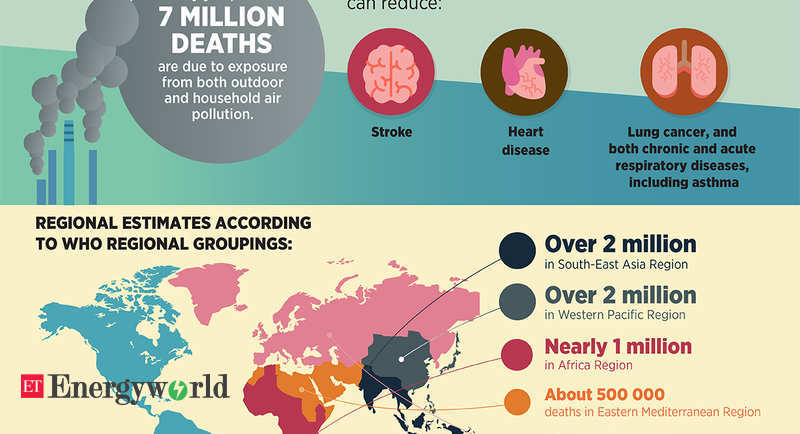
The Central Pollution Control Board (CPCB), statutory organisation, was constituted in September, 1974 under the Water (Prevention and Control of Pollution) Act, 1974.
Further, CPCB was entrusted with the powers and functions under the Air (Prevention and Control of Pollution) Act, 1981.
About the National Air Quality index (AQI):
- AQI was launched by the Prime Minister in April, 2015 starting with 14 cities and now extended to many cities.
- Air Quality Index is a tool for effective communication of air quality status to people in terms, which are easy to understand.
- It transforms complex air quality data of various pollutants into a single number (index value), nomenclature and colour.
- There are six AQI categories, namely Good, Satisfactory, Moderately polluted, Poor, Very Poor, and Severe.
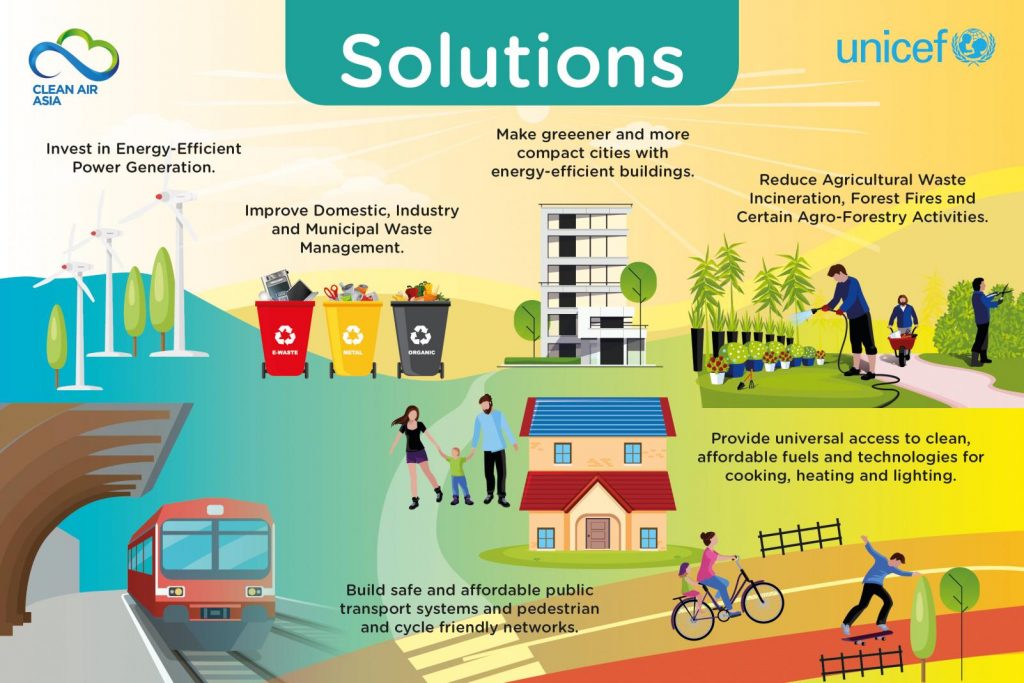
Facts For Prelims
Transgenesis:
Transgenesis is the process by which you introduce one or more genes into an organism from another organism entirely.
- This usually involves handling and modifying the DNA itself in a test tube, and then packaging it to insert it into the new organism.
- There are several ways to introduce the new gene or ‘transform’ a plant such as biolistics(the “gene gun”), using Agrobacterium – a naturally occurring organism that inserts DNA into plants, or by using electricity – a process called electroporation.
